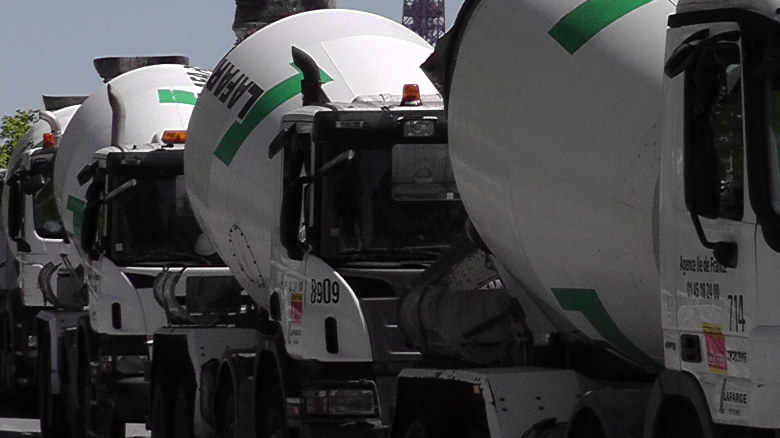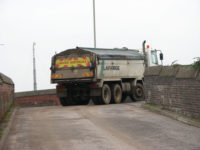French cement and concrete producer Lafarge SA pleaded guilty in a U.S. court and agreed to pay $777.8 million in fines over payments it made to two terrorist groups in an effort to keep a cement plant operating during the Syrian civil war.
Lafarge and its defunct subsidiary, Lafarge Cement Syria (LCS), pleaded guilty to one count of conspiring to provide material support or resources to designated foreign terrorist organizations, the U.S. Dept. of Justice announced Oct. 18. Following the plea, a federal judge in Brooklyn, N.Y., sentenced the firms to probation and to pay the financial penalties including criminal fines and forfeiture.
Prosecutors say Lafarge made payments totaling $5.9 million to both the Islamic State of Iraq and al-Sham and the al-Nusrah Front, which are both U.S.-designated foreign terrorist organizations. The payments enabled LCS to continue operating its $640-million Jalabiyeh cement plant through 2013 and 2014, which prosecutors say netted the company about $70.3 million.
The payments were made through fixed monthly “donations” and what prosecutors say was essentially a revenue-sharing agreement, with LCS paying ISIS 750 Syrian pounds per ton of cement it sold. LCS also bought raw materials from ISIS-controlled suppliers, and in turn expected ISIS to hinder the sale of cheaper imported Turkish cement.
Lafarge hid the arrangement through fake contracts, phony invoices, corrupt intermediaries and off-system emails, Deputy Attorney General Lisa Monaco said, reading from prepared remarks.
“In the summer of 2014, the world watched in horror as ISIS murdered innocent journalists and aid workers,” Monaco said. “That same summer, Lafarge was in business with ISIS, securing profits and market share and capitalizing on the group’s brutality.”
LCS abandoned the Jalabiyeh plant later in 2014. U.S. officials say ISIS then took over the facility.
In a statement, Lafarge said that none of the executives involved in the Syria operations are affiliated with the company today. No U.S. employees were involved, either.
“Lafarge SA and LCS have accepted responsibility for the actions of the individual executives involved, whose behavior was in flagrant violation of Lafarge’s code of conduct,” the company said in its statement. “We deeply regret that this conduct occurred and have worked with the U.S. Department of Justice to resolve this matter.”
Since leaving Syria, Lafarge has added compliance and risk management controls, the company added. It noted that prosecutors did not find it necessary to appoint an independent compliance monitor as part of the sentence.
In 2015, Lafarge was acquired by Switzerland-based Holcim Group. Prosecutors say LCS’s payments to the terror groups were not disclosed to Holcim before or after the acquisition.
Lafarge is still facing a separate court case in France, where advocacy groups and 11 Syrian former employees have accused the company of paying an even larger sum to ISIS than was acknowledged by U.S. prosecutors. In May, the Paris Court of Appeals upheld a decision allowing that case against Lafarge to continue.
In a statement, Lafarge said it is cooperating with French authorities and would continue to “defend itself against any judicial actions that it regards as unjustified in the French proceedings.”





Post a comment to this article
Report Abusive Comment